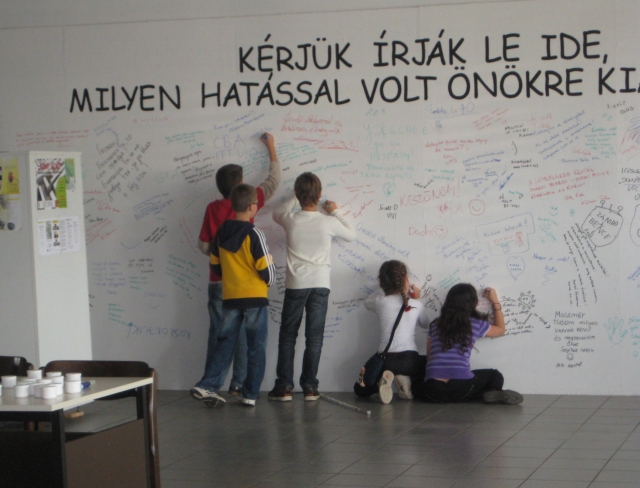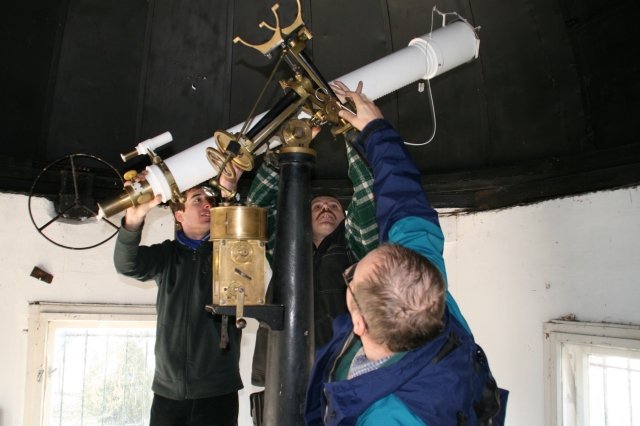Three years of the NGO Fund of the
EEA/Norwegian Financial Mechanism
 In 2010 the 6.3 million € Fund, operated by Ökotárs Foundation and its partners: DemNet, Autonomia Foundation and Carpathian Foundation-Hungary, has been essentially completed. Though some of the projects have been monitored and closed during the first months of 2011, most of the work has been finished.
In 2010 the 6.3 million € Fund, operated by Ökotárs Foundation and its partners: DemNet, Autonomia Foundation and Carpathian Foundation-Hungary, has been essentially completed. Though some of the projects have been monitored and closed during the first months of 2011, most of the work has been finished.
Between 2008 and 2010 we received more than 2000 proposals in three rounds out of which 240 projects were funded, allocated as follows:
| Year | Topic | Total | ||||
|---|---|---|---|---|---|---|
| Environment protection and sustainable development | Civil liberties and capacity building | Social cohesion, health and childcare | Cultural heritage | |||
| 2008 | Submitted | 154 | 352 | 246 | 201 | 953 |
| Supported | 30 | 24 | 19 | 22 | 95 | |
| 2009 | Submitted | 162 | 187 | 296 | 230 | 875 |
| Supported | 25 | 20 | 19 | 19 | 82 | |
| 2009/2 1st round | Submitted | 157 | 185 | 286 | 204 | 832 |
| 2009/2 2nd round | Submitted | 43 | 41 | 49 | 39 | 172 |
| Supported | 16 | 12 | 15 | 19 | 63 | |
| Sum of the 3 year* | Submitted (1st round) | 473 | 724 | 828 | 635 | 2660 |
| Submitted (2nd round) | 359 | 580 | 591 | 470 | 2000 | |
| Supported | 71 | 56 | 53 | 60 | 240 |
* In the 3rd grant round the application procedure changed and became a two-phase process. Proposals submitted during the first two rounds (2008, 2009) are included in the numbers of both phases here.
(For more information go to: www.norvegcivilalap.hu)
In many ways, the Fund posed a challenge to the operating foundations, which - taking advantage of the freedom given in the EEA / Norwegian Financial Mechanism – also aimed at setting a good example with their attitudes and operation methods towards other financing schemes, demonstrating that a reliable and successful supporting program does not necessarily have to be bureaucratic for the benefit and satisfaction of all concerned.
 Although all four foundations have already handled their own grant programs and / or managed grant-making mechanisms, the EEA/Norwegian NGO Fund meant a great new task for them, both becuase of the size of the Fund, the number of applications and also the size of the supported projects. All these aspects made it necessary to manage the Fund in cooperation, which in itself was unprecedented in the Hungarian practice. The joint work was greatly facilitated by the fact that each of the four foundations have similar roots: they were initiated and supported by US public or private donors, institutions.This also brought along that they all have a similar grantmaking approach which reflects an overseas attitude that is based on trust, handles the beneficiary as an equal partner, is less bureaucratic and more flexible compared to European and particularly domestic public funders.
Although all four foundations have already handled their own grant programs and / or managed grant-making mechanisms, the EEA/Norwegian NGO Fund meant a great new task for them, both becuase of the size of the Fund, the number of applications and also the size of the supported projects. All these aspects made it necessary to manage the Fund in cooperation, which in itself was unprecedented in the Hungarian practice. The joint work was greatly facilitated by the fact that each of the four foundations have similar roots: they were initiated and supported by US public or private donors, institutions.This also brought along that they all have a similar grantmaking approach which reflects an overseas attitude that is based on trust, handles the beneficiary as an equal partner, is less bureaucratic and more flexible compared to European and particularly domestic public funders.
 The operators attempted to practice this mode of operation in all levels of the Fund management. With elaborating simply formulated application documents and a user-friendly online system they endeavored to simplify the process of proposal writing and reporting. In addition they refined and developed the system in the light of the feedbacks and assessments. Besides, much depended on the attitude and openness of the staff: everything conveyed the message that the applicants and beneficiaries could contact us with sincerity as our common interest was to support and deliver good and successful projects. The feedbacks clearly confirmed that all applicants appreciated this personal style. The speed and the adherence to deadlines were considered as important positive aspects, too: from the deadline to submit applications the evaluation of the proposals happened within less than 2 months; within a few days after contracting and approving reports the actual payment installment was transferred as well.
The operators attempted to practice this mode of operation in all levels of the Fund management. With elaborating simply formulated application documents and a user-friendly online system they endeavored to simplify the process of proposal writing and reporting. In addition they refined and developed the system in the light of the feedbacks and assessments. Besides, much depended on the attitude and openness of the staff: everything conveyed the message that the applicants and beneficiaries could contact us with sincerity as our common interest was to support and deliver good and successful projects. The feedbacks clearly confirmed that all applicants appreciated this personal style. The speed and the adherence to deadlines were considered as important positive aspects, too: from the deadline to submit applications the evaluation of the proposals happened within less than 2 months; within a few days after contracting and approving reports the actual payment installment was transferred as well.
Although we know it is only a start, we hope that the EEA/Norwegian NGO Fund’s practice, if slowly, but will have an effect on the operation of state funding mechanisms and organizations as well...